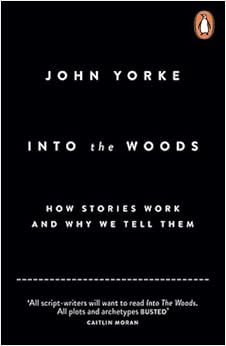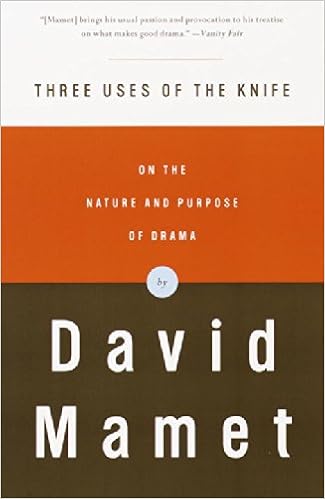The holidays are a time of year for gathering with family, huddling against the onset of winter, and apparently reading books about story structure, a subject which I’m well aware is 95% wank and largely instinctive anyway, but still something I find interesting.
Into The Woods (John Yorke)

The approach taken by former Life On Mars (and many others) writer, drama commissioning guy for C4, et al. John Yorke is a little different to many of his contemporaries in so much as he claims not to be pushing a particular structure (“3 acts or none!”, “Give me a Hero’s Journey or give me death!”, etc.) but looking at the root shape underlying most (Western; it’s never stated, because sadly it generally gets ignored, but there are other approaches elsewhere) storytelling through history, regardless of how it’s broken down, what type of story it is, or what medium it appears in. He also goes into the why of this shape (though at nothing like the length you’re led to believe; it’s the last 20 pages out of 230), what it says about/how it’s shaped by our psychology, and, interestingly, why it almost automatically dooms series writing with developing characters to around three outings at most.
On the way, he covers the evolution of the “standard” forms from Ancient Greece, the five-act theatrical standard and how that arose from candle length and audience comfort (the need, then, for regular breaks), then three-act and how that came with gas/electric light and better seating, via Campbell, Vogler, and all the exceptions and variances throughout.
As a writing manual, it’s good, particularly on the character side. I particularly like the emphasis on needing a good antagonist (in whichever form that comes), and why they need to be there. The difference in writing series characters - tinged slightly gratingly by unfortunate terms like “two-dimensional” and “genre writing” that aren’t actually as loaded in context but which I imagine would easily put people’s backs out - and the perils involved are also something I’ve not seen before in a book of this type. His history of screenwriting theory and trends is thorough and engaging (and, if you’re writing in the field today, necessary).
There are some quibbles. The required disclaimer, repeated on occasion, that there will always be exceptions to any rule makes the advice woollier than it might be, I’m not sure there isn’t a bunch of “A=B because B=A” reasoning in the psychology, whose heavy Jungian reliance I’m not sure is entirely advisable, and for all that he claims that all standard structures are merely ways of breaking apart the root story, he tends to outline everything in terms of five acts (which is fine, just seems a touch inconsistent).
All told, though, this is an engaging and thorough dissection of story craft that’s far broader, and thus more helpful, than many other attempts I’ve read.
Three Uses Of The Knife (David Mamet)

A reference in Into The Woods led me to this, Mamet’s short essay(s) from 1998 on what makes good drama (which, pro tip, isn’t available as an ebook in the UK so if you’re a Brit you may have to, uh, trick stores into thinking you’re in the US or get an American friend to pass it along minus DRM).
Mamet - it goes without saying - knows his stuff, and there’s some good material here. Not in terms of framing a story, but in terms of what drives audience interest in a scene or a character, and, again, the why of it (to the extent that some of Yorke’s book reads like a lengthening of what’s here).
It’s also wrapped up in a lot of politics (on which Mamet went on to write a separate book a couple of years ago) and railing against the rise of 700-channel TV culture (IIRC, likewise), and the somewhat scattershot structure means the whole thing reads like the recorded ramblings of your supremely talented but also deeply cranky playwright uncle after a couple of glasses of sherry.
That said, it’s worth reading. Not worth paying print prices for now - in hardcopy you’re looking at $20-30 for, ooh, probably 15k ish words, about half of which go for a long wander - but otherwise.
